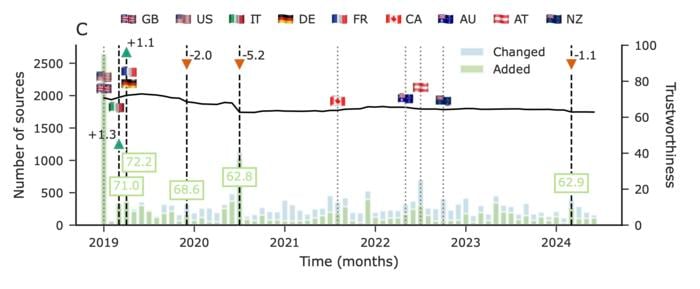WASHINGTON — Since last year, Sen. Mitt Romney (R-Utah) has been the only Republican on Capitol Hill willing to embrace a monthly cash allowance for parents.
Now he’s got two conservative colleagues, Sens. Steve Daines (Mont.) and Richard Burr (N.C.), co-sponsoring his Family Security Act, a bill that would pay parents as much as $350 a month per child. Their support shows growing bipartisan momentum for an idea long discussed on the left — one that other rich countries put into practice decades ago.
Romney’s bill is broadly similar to the monthly child tax credit payments Democrats put in place for six months last year but failed to continue after Sen. Joe Manchin (D-W.Va.) refused to support an extension.
If Democrats can’t muster 50 votes among themselves, the only way to resurrect the monthly payments would be some sort of bipartisan compromise. Now that Romney has won over two more Republicans, the bipartisan path looks a little more plausible.
“I’m willing to sit down with them and look at several provisions,” Romney said Wednesday. “There are a number of things they won’t like in our bill, and we’ll have to work on a bipartisan basis to get something that we can all agree to.”
A key difference between the Republican bill and what Democrats did last year is that Republicans would deny payments to parents with zero income. In other words, the GOP bill has a “work requirement” — something Manchin had insisted on that Democrats refused to include. Romney had omitted such a work requirement from a similar bill last year that no other Republican supported.
Allowing the poorest parents to receive payments last year was a top priority for Democrats because that’s how the payments slashed child poverty by nearly 30%. Romney’s bill would allow low earners to receive only partial benefits, meaning it would cut child poverty by only 12.6%, according to an analysis by the Niskanen Center.
Another major difference between the two approaches is that Republicans would offset the cost of their bill by eliminating a handful of tax benefits, including the deduction for state and local taxes — something that Democrats from New Jersey and other coastal states would strenuously oppose.

The Washington Post via Getty Images
Still, Democrats said they were heartened by Romney’s bill. Sen. Michael Bennet (D-Colo.), a key proponent of the child tax credit, said he deeply appreciated Romney’s effort to get more Republicans on board.
“While we have clear policy differences, one thing is certain — we can’t continue to allow 11M kids to live in poverty in the wealthiest nation in the world,” Bennet tweeted.
Republicans approach the issue of paying parents from a different direction than Democrats do. Democrats want to reduce child poverty, which results from a lack of parental income, while Republicans want to encourage more people to have babies. They also might want to show more support for parents as the Supreme Court prepares to roll back Roe v. Wade.
Romney touted support for his bill from anti-abortion groups like Susan B. Anthony Pro-Life America and National Right to Life. His bill would allow expectant mothers to begin claiming the monthly benefits.
“This life-affirming provision not only empowers mothers, but acknowledges that life begins before birth,” National Right to Life said in its endorsement of the bill.
Bennet and Romney have told HuffPost in recent weeks that they’ve been having informal conversations about the child benefit, but Romney said he can’t really negotiate with Democrats until they quit negotiating among themselves about their previous vehicle for the policy, a doomed bill known as the Build Back Better Act.
“If it really goes away, then I think they will be interested in sitting down and seeing if we can find a bipartisan deal,” Romney said.























































